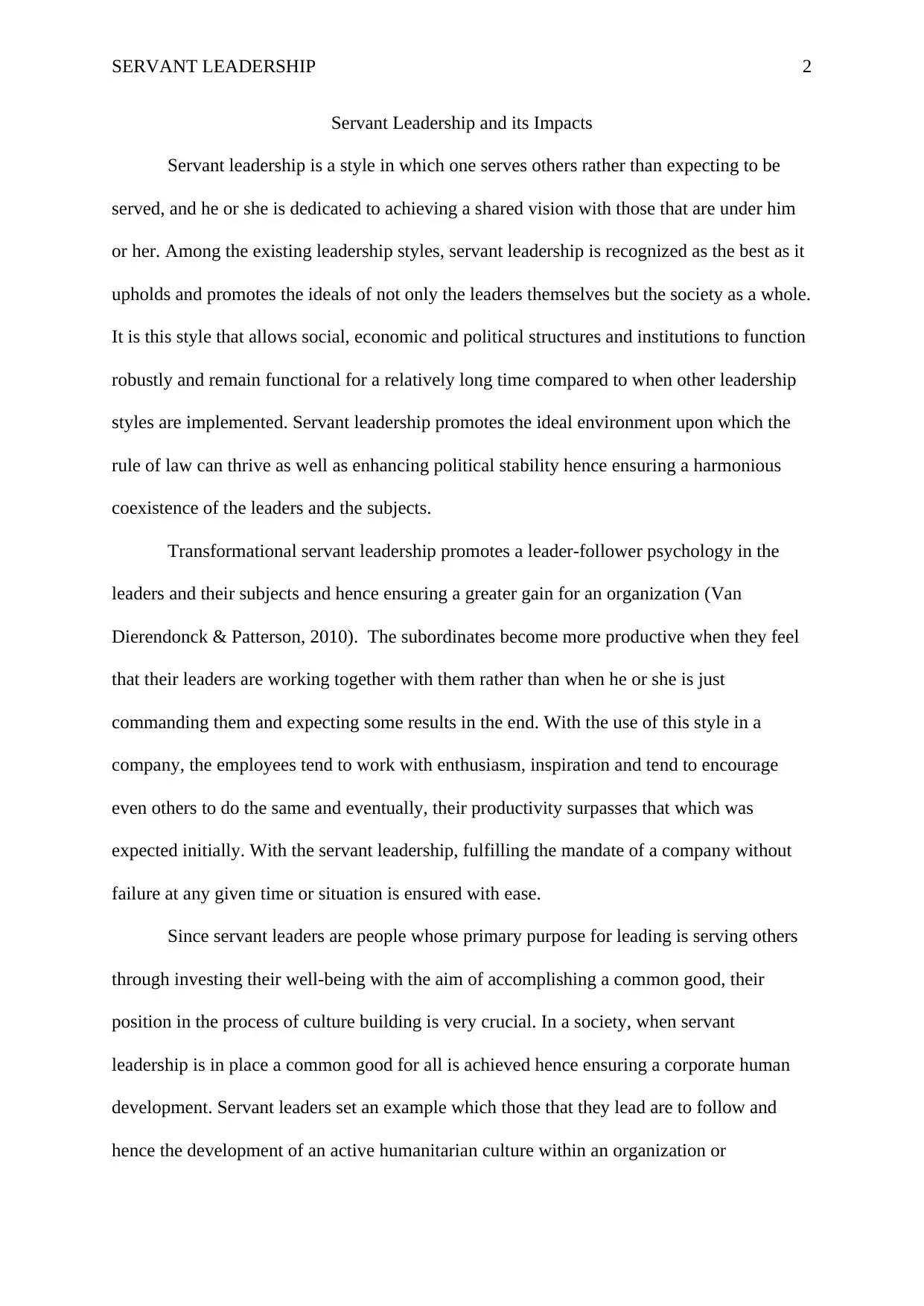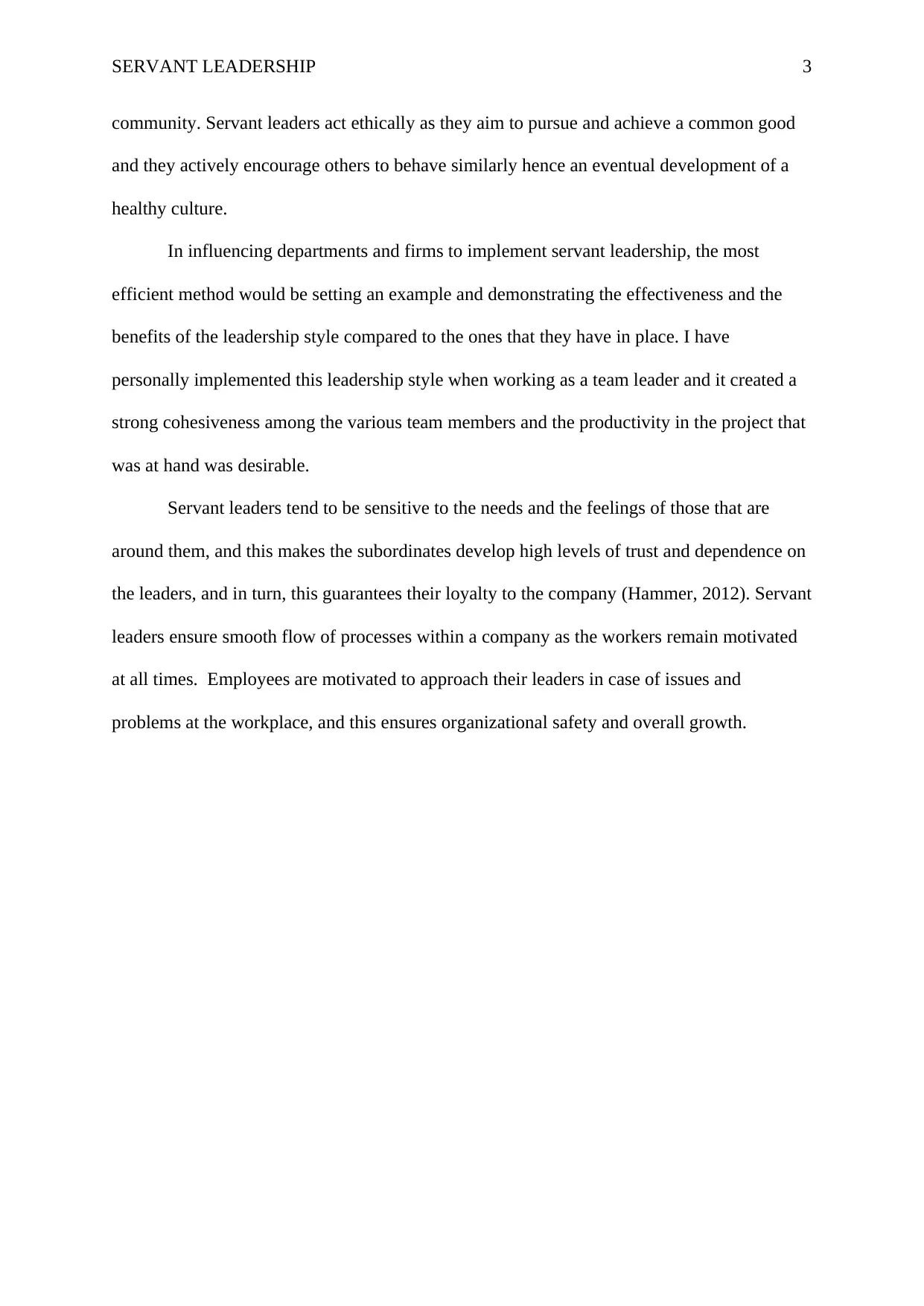Servant Leadership: Analysis of Impacts on Organizations and Society
VerifiedAdded on 2020/03/16
|4
|628
|36
Report
AI Summary
This report provides an analysis of servant leadership, examining its impact on organizations and society. It explores how servant leadership promotes ethical behavior, enhances productivity, and fosters a positive work environment. The report highlights the importance of servant leadership in creating a cohesive team environment and ensuring the smooth flow of processes within a company. The report provides examples of how servant leadership can be implemented and the positive outcomes associated with it. It emphasizes how servant leaders are sensitive to the needs of others, leading to increased trust, loyalty, and overall organizational growth. Furthermore, the report references key literature that supports the principles and practices of servant leadership, making it an essential resource for anyone interested in understanding this leadership style and its benefits.
1 out of 4











![[object Object]](/_next/static/media/star-bottom.7253800d.svg)